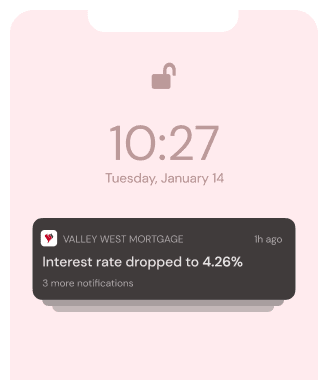
California regulators on Wednesday unanimously approved a historic plan that will require most new homes in the state have rooftop solar panels that turn sunlight into electricity starting in 2020.
With the move, California now becomes the first state in the nation to mandate solar-energy installations on most single-family homes as well as multi-family residential buildings up to three stories, including condos and apartment complexes.
The solar mandate is expected to add on average about $9,500 to the cost of new houses but is projected to be offset by the solar system's long-term energy savings.
The mandate, approved 5-to-0 by the California Energy Commission, is part of the state's 2019 update of energy efficiency standards and ongoing efforts to help reduce greenhouse gases. The state's building sector is the second-largest source of greenhouse gas emissions when fossil fuels power plants are factored in.
"This is an undeniably historic decision for the state and the U.S.," said Abigail Ross Hopper, president and CEO of the Solar Energy Industries Association, a trade association with about 1,000 member companies. "California has long been our nation's biggest solar champion, and its mass adoption of solar has generated huge economic and environmental benefits, including bringing tens of billions of dollars of investment into the state."
The commission's action on new 2019 building energy efficiency standards also apply to everything from current ventilation systems to indoor air quality. California updates its building energy efficiency standards every three years, and the state's ultimate goal is net-zero energy homes that reduces the carbon footprint of buildings and makes them effectively energy self-sufficient.
California — now the world's fifth-largest economy — already has a reputation for pushing the boundaries when it comes to going green. The state's renewable portfolio standard requires power companies to have 50 percent of total energy sources from renewable energy such as solar, wind, geothermal and hydroelectricity by 2030.
The commission estimates the solar mandate will add an average of about $9,500 to the upfront cost of single-family houses but result in about $19,000 in energy savings over a 30-year period.
"California has been a leader in solar in the U.S. for a long time and it's paid dividends both economically and to our environment here," said Sean Gallagher, vice president of state affairs for the Solar Energy Industries Association, a national trade association of manufacturers, developers and installers in the U.S. solar-energy industry. "California is taking a step further basically recognizing that solar should be as commonplace as a front door welcoming you home."
The approved standards still allow new home construction to continue with some natural gas but it looks to reduce gas need over time and facilitate a shift to high-efficiency electric appliances, such as heat pump water heaters. All-electric homes using solar are seen as having lower greenhouse gas emissions and less energy consumption than those that use natural gas.
Under the change, new homes are expected to cut energy use by more than 50 percent by having solar photovoltaic systems on rooftops. For residential homeowners, the commission estimates that the standards will add about $40 to an average monthly payment over a 30-year period but essentially save consumers $80 on monthly heating, cooling and lighting bills.
There are still significant upfront costs of requiring the solar panels on rooftops of new homes. The mandate comes at a time when California also is dealing with a housing shortage and the challenge of affordable homes statewide.
Experts suggest the cost of adding solar on new homes in areas such as the San Francisco Bay region where real estate prices are already high may not affect homebuyers as much. But it could prove to be more challenging for new homeowners in communities with lower housing costs such as Fresno in the Central Valley.
Regardless, the state estimates the proposed solar standards applying to most homes and many commercial structures could save California residents and businesses hundreds of millions of dollars in energy costs over the next decade.
Resource:
https://www.cnbc.com/2018/05/09/california-approves-plan-to-mandate-solar-panels-on-new-homes.html

Instant notifications for your scenario
Let's do it⏰ Your offer will be delivered to your inbox in less than a minute!